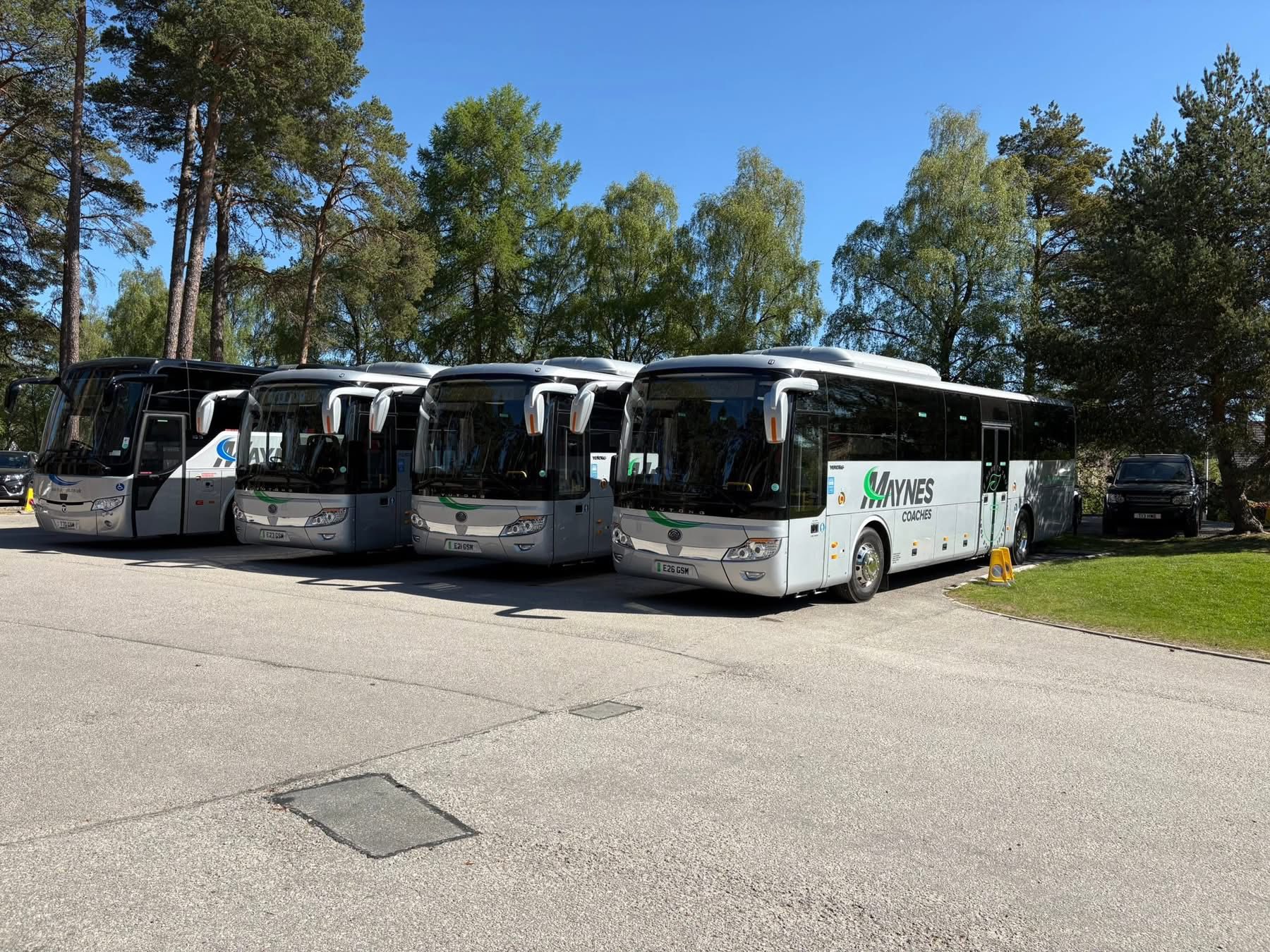May 16 2025
CPT's Policy Manager, Nicholas Jessup, has been in conversation with Maynes Coaches about the future of Zero-Emission Coaches.
As the world pivots toward net-zero targets, the conversation around sustainable travel is broadening. One area gaining traction, but unfortunately often overlooked, is the coach industry. Traditionally reliant on diesel, coaches are now edging into the green transition thanks to pioneering efforts by a few innovative operators, including CPT Member Maynes Coaches. The shift is not just an environmental imperative, but it presents a business and societal opportunity.
From Exclusion to Inclusion: The Policy Push
For years, coaches were the "forgotten cousin" in government funding initiatives aimed at decarbonising transport. Unlike buses, which received support under schemes such as ZEBRA coaches remained broadly ineligible for zero-emission incentives. This began to change when determined voices from within the industry made their case.
In Scotland, persistent advocacy led to the inclusion of coaches in public funding schemes for zero-emission vehicles. Through rigorous case studies and collaboration with manufacturers and policymakers, coach operators demonstrated the substantial environmental benefits of converting traditional fleets. Maynes Coaches identified over 1.4 million kilometres of travel within a single council area that could shift to zero-emission operation. Their approach not only transformed regional transport but also stands to serve as a model for broader adoption across the UK.
Building a Charging Network That Works
A key innovation behind the transition was the establishment of a strategic charging network. A consortium of operators created a map of shared charging points across Scotland, enabling long-distance travel without the risk of running out of charge. From its main depot in Buckie and depots in Elgin to the remote Orkney Islands, this collaborative infrastructure is a game-changer for coach operators who need flexibility for diverse routes, including school transport, private hires, and tourism.
While existing infrastructure – such as motorway car chargers – can technically be used by coaches, they are far from ideal. High-powered chargers at service stations and coach depots are essential. Here, government investment can make a decisive impact. Kevin Mayne of Maynes Coaches explained: "The concept is simple: coaches should be able to park, plug in, take their statutory break while passengers use facilities, and then get back on the road".
Overcoming Barriers: Cost, Confidence and Capability
Despite progress, significant barriers remain. Chief among them is cost. Zero-emission coaches and their accompanying infrastructure come with a high price tag, and without targeted funding, many operators simply cannot make the switch. This high price tag is likely to remain, especially as the second-hand market for zero-emission coaches remains in its infancy.
Mayne also noted the psychological barrier – "a fear factor like the first journey to the moon” – associated with adopting new technologies, especially without the government support for infrastructure needed to operate new vehicles. But as more operators successfully integrate electric coaches into their fleets, confidence is growing.
Crucially, zero-emission coaches have proven themselves not just environmentally sound but operationally effective. Mayne contrasted it to scheduled buses that can often run empty loops – coaches perform targeted, high-occupancy journeys, removing dozens of cars from the road with each trip. For businesses concerned with their carbon footprint, this presents a compelling value proposition, if initial upfront cost barriers can be overcome.
The Road Ahead: Hydrogen and Beyond
While electric coaches are gaining ground, other options are also being explored to maximise opportunity. Hydrogen-powered vehicles are on the near-term agenda, particularly for long-range routes. Projects like the Maynes-involved Speyside Hydrogen initiative – bringing green hydrogen from offshore wind turbines to land – highlight the next evolution in sustainable coach travel. With hydrogen infrastructure in development, Maynes thinks “.”
Moreover, coach operators are responding to demand from environmentally conscious clients, especially global brands with ESG goals. The industry is on the cusp of delivering a full range of zero-emission options - Maynes Coaches can already offer full-size 50-seaters and smaller vehicles – though the mid-size market remains an engineering gap to be filled.
Conclusion
Zero-emission coaches are no longer a future fantasy – they are a present-day reality and necessity. That being said, the date for phase out of new non-zero emission coaches remains to be set by the government, and to give the sector greater confidence, CPT is calling on the government to work with industry to agree a realistic timeline for phasing out non zero-emission models. Through a blend of innovation, collaboration, and policy change, the sector is finding its place in the wider decarbonisation narrative. The journey is complex, but the destination – a cleaner, more sustainable transport future – is well worth the ride.
